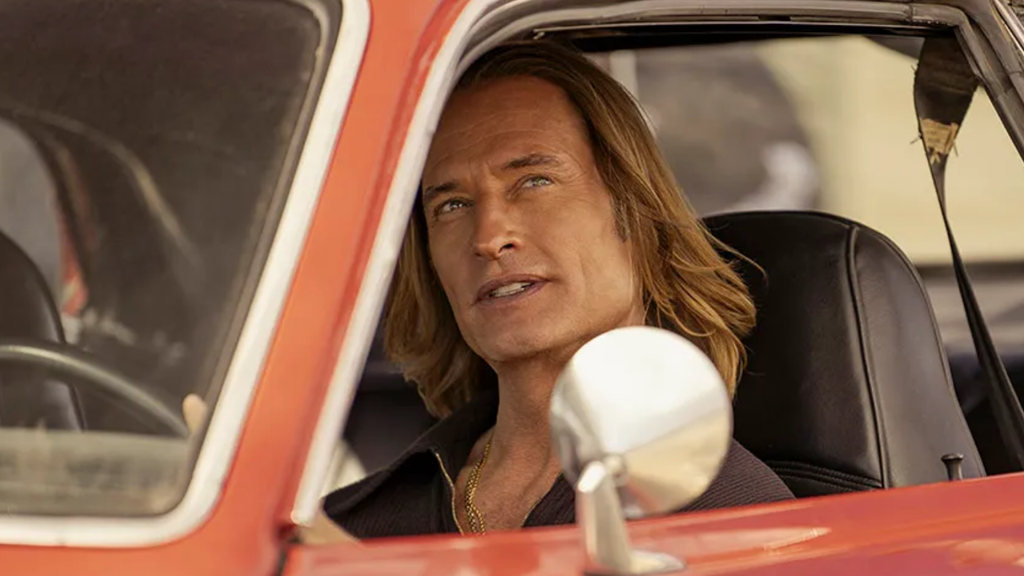Review: How Music Came Down to Earth, in ‘Goddess’


If you’re going to call your show “Goddess,” you’d better have one handy. Luckily, the musical with that name that opened on Tuesday at the Public Theater stars Amber Iman, who fully fits the bill. Whether scatting or belting or just standing tall in gold eye shadow and regal gowns, she conveys the combination of power and ease that inevitably elicits words like “otherworldly.”
When Saheem Ali, the director of “Goddess,” gives Iman and the rest of the talented cast a chance to display that otherworldliness, mostly while performing the songs by Michael Thurber and dances by Darrell Grand Moultrie, the show makes a strong case for live performance as a central expression of our divided nature. “What is human? What is divine?” goes one of Thurber’s better lyrics. “Do either exist until they intertwine?”
But when merely talking, “Goddess” descends. The book by Ali, with additional material by James Ijames, is labored, with a conventional plot about a young Kenyan man torn between furthering his family’s political dynasty and baring his artistic soul. (He plays saxophone.) It doesn’t take long to get bogged down in banalities of both the domestic and the folkloric variety.
Because yes, the goddess of the title is literal. Iman plays Marimba, a mythic East African queen who, we learn in a flashback, taught humans to sing and gave them their first instruments. But like Omari, the saxophonist, Marimba has parent problems. Her mother wants her to go into the family business, which to judge from Julian Crouch’s amazing puppets and masks is evidently Evil Incarnate. But Marimba, refusing to accept the mantle of war goddess, instead escapes to Mombasa to live under a new name, Nadira, in an underground nightclub called Moto Moto.
It is there that Nadira becomes a queen in the secular sense: a star. Singing Thurber’s mélange of music, which encompasses smooth jazz, R&B, theatrical pop and an aura of Afrobeat, she draws an audience that is similarly diverse. Moto Moto, run by the spunky Rashida (Arica Jackson) and emceed by the exuberant Ahmed (Nick Rashad Burroughs) becomes a hotbed of heterogeneity (there’s even a shaman) in a culture that is otherwise intolerant of mixing.
Intolerance drives the other side of the story. Educated in New York City, Omari (Austin Scott) returns to Mombasa after his father, the incumbent governor, has a heart attack. Put forth to replace him, Omari wants to run a new kind of campaign, one that will “blow open the doors to everyone: Muslim, Christian, gay, straight, everything in between.”
But when he proposes to announce his candidacy at Moto Moto, his family does not react well. His father (J Paul Nicholas) calls it a “cave of sin,” further likening the place to a gutter. His mother (Ayana George Jackson) urges obedience and calm — and later sings a song about honoring one’s “Baobab Roots.” Even his fiancée (Destinee Rea), to whom he was engaged as a toddler, and who has political dreams of her own, looks suspicious.
As well she might. It does not spoil anything — how could it, when the plot has been around forever — to say that Omari and Nadira fall for each other and that the fiancée quickly finds out. But once Omari has helped Nadira feel human love, and she has helped him release his musical gift, they worry about what it means to defy the world they were born into. Must she return to mother? Must he hock his horn? Well, not before they make ecstatic music together in a terrific number called “Boom Boom,” in which the call-and-response between singer and sax amounts to aural foreplay.
If that theme of making ecstatic music together sounds familiar, perhaps you are thinking of “Buena Vista Social Club,” the celebration of Cuban culture that Ali likewise directed. Indeed, the shows have plenty in common, including the possibility that “Goddess” intends to follow “Buena Vista” to Broadway.
But “Goddess” is evidently a more personal show for Ali: He grew up, like Omari, in a Kenyan family that disapproved of his interests in the arts. His liberation came from the theater, in particular a production of “Grease” he saw when he was 15. Even leaving aside the autobiographical elements, he has been working on “Goddess” for 18 years.
Not surprising, then, that it feels overworked. (It is also overamplified.) Too much rewriting has left it lumpy; the main characters often disappear for long stretches, and the first act curtain confusingly highlights a subsidiary one. And though trying to encompass in two hours of stage time the multitude of worlds that “Goddess” has acquired is congruent with the theme, it is at war with the format. The cramming of musicians, politicians, horndogs, matriarchs, griots and immortals into one story does none of them justice.
More happily, Ali’s staging often does, the action merging seamlessly into Moultrie’s propulsively sexy choreography. The show looks great, too, its grotto set (by Arnulfo Maldonado) lit in hot pinks and purples (by Bradley King) that are complemented by costumes (by Dede Ayite) of astonishing vivacity. They are what joy looks like when turned into fabric.
And Iman is what joy sounds like: satiny, sultry, unpredictable, unforced. There is no tension in her steamroller belt. Her riffs and curlicues drop off her like cherry blossoms. If Thurber’s lyrics are too often generic, not repaying close attention, no matter; the star gets the big points across. That is, after all, what stars do, in heaven or on earth.
What's Your Reaction?
 Like
0
Like
0
 Dislike
0
Dislike
0
 Love
0
Love
0
 Funny
0
Funny
0
 Angry
0
Angry
0
 Sad
0
Sad
0
 Wow
0
Wow
0







































